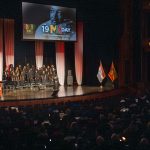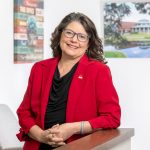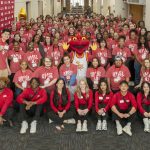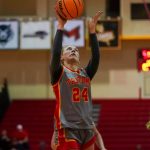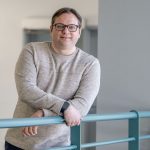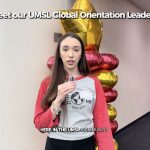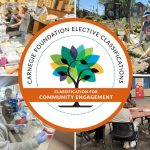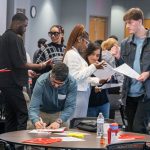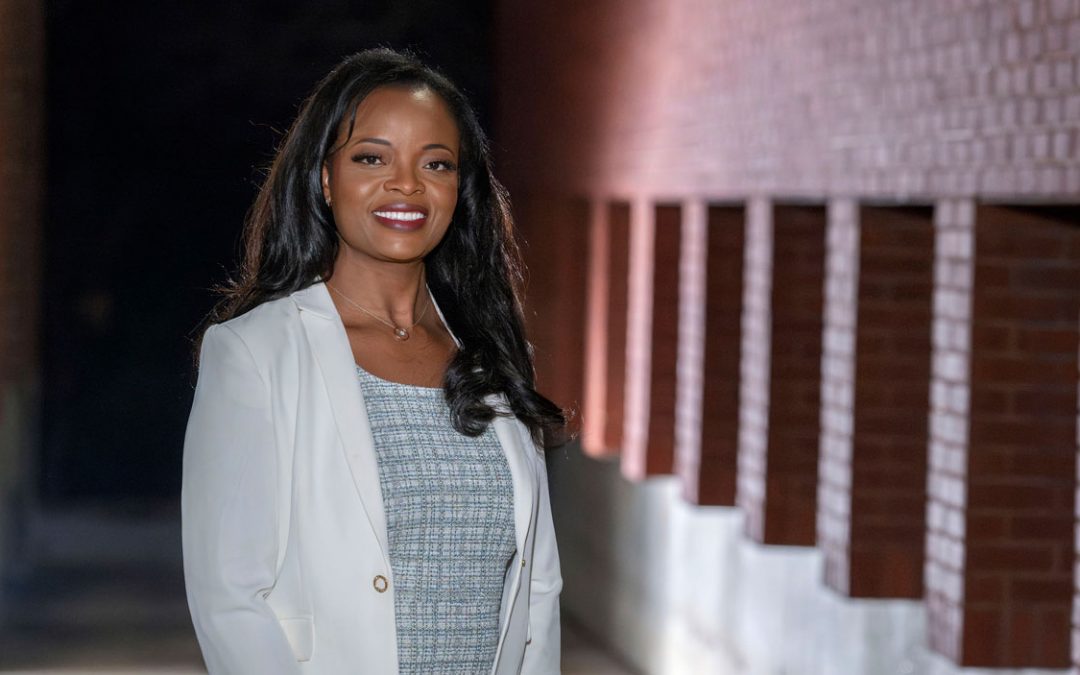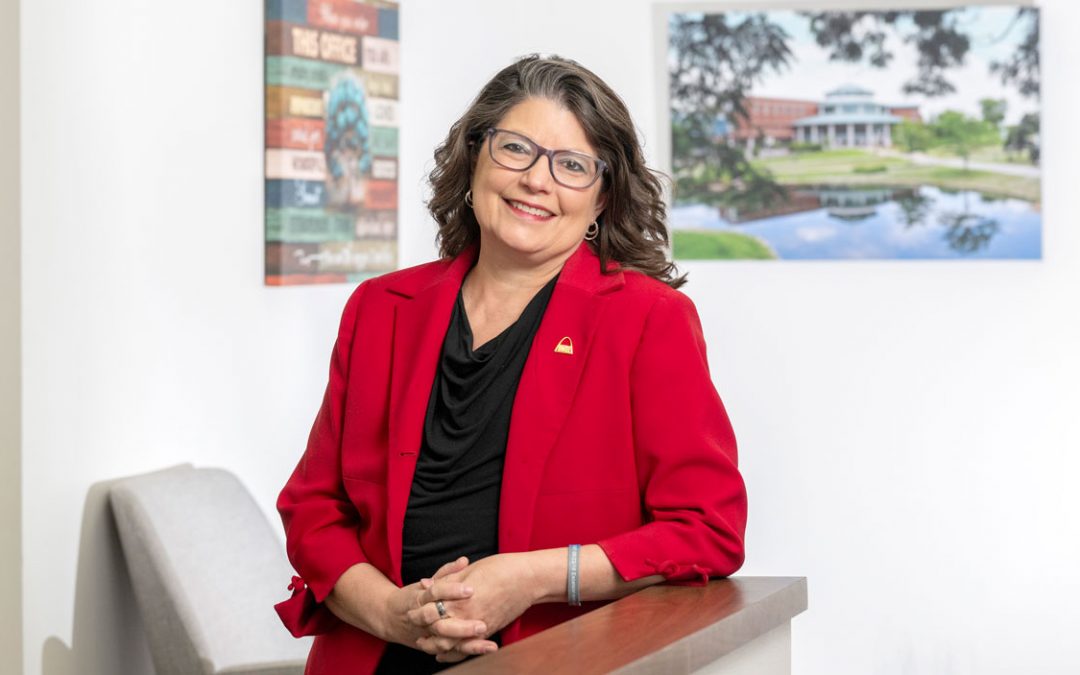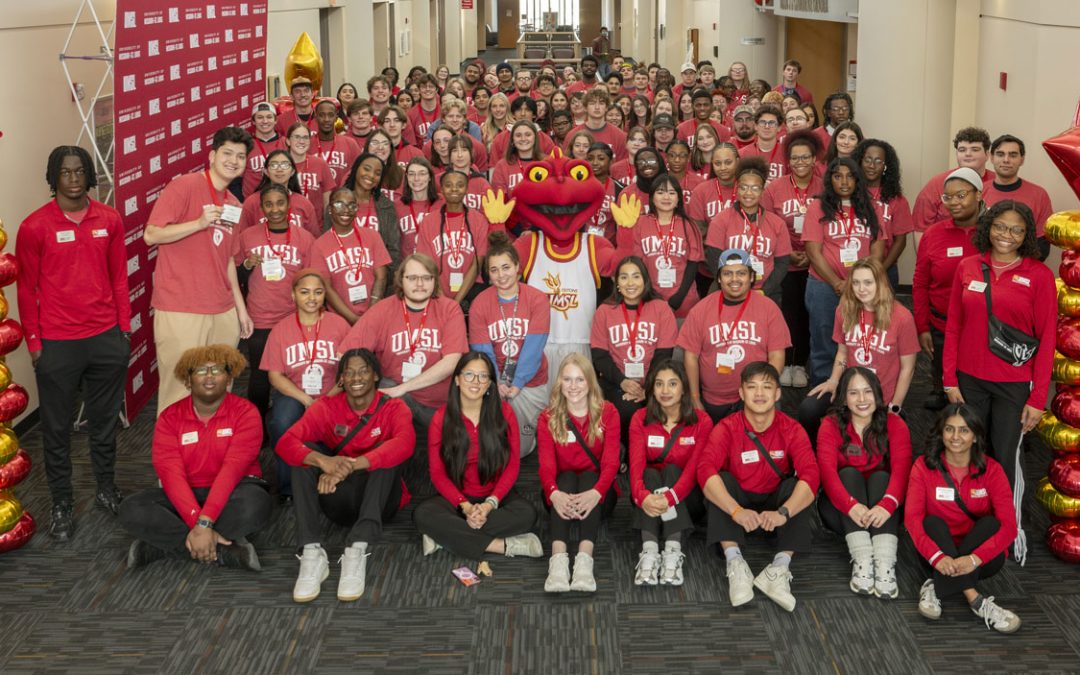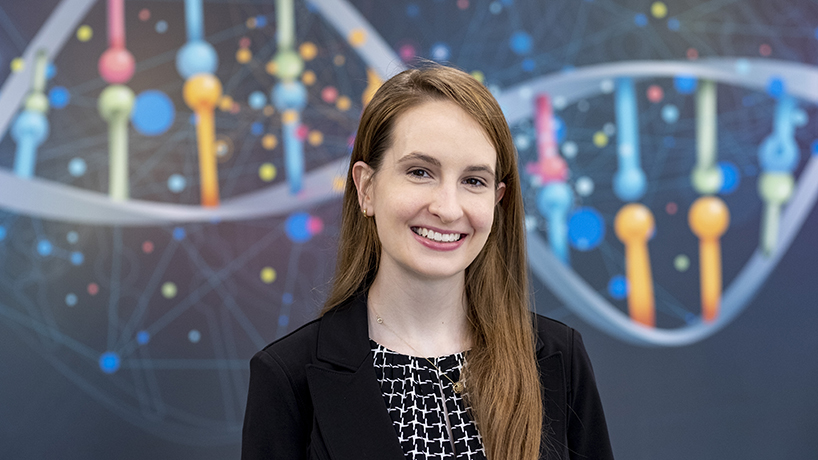
Honors College student Harper Wieldt has received six acceptances to master of health administration programs for the fall. (Photo by August Jennewein)
Harper Wieldt always pictured herself working in a medical setting.
The University of Missouri–St. Louis student had spent her whole life in and out of hospitals, first because of her elder brother’s autism and bone disorder and then as her mother was treated for a series of cancers.
“It’s been very stressful but also rewarding,” she said. “I’ve met so many different people in wide-ranging positions and was able to shadow them. Being in the hospital, that is what drew me to science. I just wanted to learn more and see what I could do with it.”
Wieldt, who is poised to graduate with a degree in chemistry with a biochemistry emphasis and a certificate from the Pierre Laclede Honors College, will be combining her interests in science and health care with leadership skills gained while in school as she heads off to a master of health administration program this fall.
Though Wieldt knows what she’ll be doing, she can’t tell you where just yet. That’s because she’s gotten into six programs and, so far, has received one assistantship offer.
“There are so many different aspects in making a hospital work,” she said. “My brother – he has caseworkers, he has physical therapists, he has numerous doctors and different people that all work harmoniously to make sure that his is in the best, ideal condition.
“Health administration, it’s the logical step forward. It’s going to help me achieve my goal of being in the hospital, but it’s also going to help me optimize people’s health.”
Wieldt came to appreciate the administrative side of health care through her involvement with student leadership. She has been an active member of the Student Government Association since first serving as a senator and has also been a board member of the Student Activity Budget Committee.
As a first-year student, Wieldt ran and was elected treasurer of SGA and then chair of the SABC, serving in those positions during her sophomore year.
“That was just a lot of fun,” Wieldt said. “I met great people. I learned a lot about myself and who I could be.”
Though she’s always been the type of person to be involved, Wieldt initially took on leadership responsibilities because she was motivated to initiate change.
While at SABC, she reworked the policy for how student organizations apply for and receive funding to ensure it was transparent and consistent.
“I saw that it could be improved, and no one was doing it so, therefore, why not?” she said. “I really enjoyed the policy aspects and getting into the nitty gritty. I think that is partly because of my chemistry and math background. I do enjoy going over the details and making sure everything is working smoothly and as efficiently as possible.”
Her experiences with student leadership led Wieldt to participate in the Emerging Leaders Program, which helped her improve her communications skills. It also led to her being named the Rising Student Leader of the Year.
The class helped her learn more about herself, her strengths and weaknesses, and become more well-rounded.
“I realized who I was and who I could be, and what steps there were that I could take to become my full self,” she said. “Not being afraid to take the initiative was a big part of it. We all have ideas of how the world should be and how the world actually is, so I was very proud of myself for being able to run in the election, to actually campaign for a seat, and then be admitted.
“It meant that people actually saw that I had the drive to get done whatever job needed to be accomplished. It felt very heartwarming that people supported me who didn’t even know me, that they saw that if I set my mind to something, I would see it through.”
Wieldt has found support and made connections across campus in her academic pursuits as well. That includes mentorship from former Coordinator for Student Program Rainer Gall, pretty much everyone in the tight-knit chemistry department and her instructors and peers in the Honors College.
One such mentor was Honors College Associate Teaching Professor Ann Torrusio, whose classes Wieldt viewed as one of many favorites.
“The excitement, the enthusiasm, she was always pushing us to our full potential,” Wieldt said. “The Honors College is just a fabulous program to help people have a voice, to have an opinion. The Honors College really did help with becoming more well-rounded. The professors want you to succeed, and they were there to help me every step of the way.”
Her Honors courses played well against chemistry. She’d always been drawn to and good at math, but chemistry turned out to be both a challenge and a delight.
Her favorite part was learning the process of solving equations and then getting to see the end results.
“What fascinated me were the potential interactions in fields that I had never even heard of before,” Wieldt said, pointing as an example to quantum mechanics thought experiment paradox Schrodinger’s cat. “I really enjoyed learning the equations and how to apply them and what the results mean.”
Wieldt’s education has been supported by a full-tuition scholarship following her participation in the Students and Teachers as Research Scientists program in 2015. She’s also earned support from the chemistry department as well as the Eugene J. Meehan Scholarship and the Harriet Woods Leadership Scholarship.
After she lands on which health administration program she’ll be attending, Wieldt plans to tackle another large goal: studying for the MCAT and applying to medical school.
“I’m very excited that I’m continuing on with my education,” she said. “I’ll have a great education no matter where, and I’m confident that I will keep going forward, and I won’t look back. During COVID, times were tough. But I also realized that I had a great support network from UMSL and my family, and without them, I wouldn’t be where I am today, and I’m very appreciative.”



